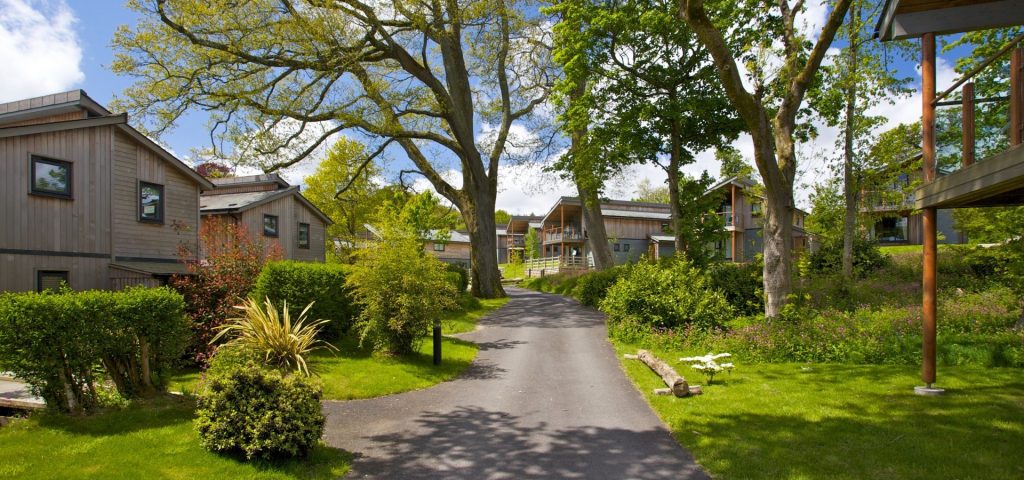Why do people love Cornwall so much? Is it the stunning landscape, the mild climate, or the sense that you are, simply, in another country as soon as you cross the River Tamar? With a proud history and a distinctive culture, there’s a lot more to Cornwall besides its world-class beaches and excellent cuisine (although both these things also rate very highly with us!).
We take a look at what is so special about Cornwall.
Its beautiful landscape
From the wild beauty of Land’s End to the lush creeks around Falmouth, the landscape is wonderfully diverse. Even the coast differs from place to place: the sweep of Fistral Bay on the north coast is very different from the hidden rocky coves further west.
With over 250 miles of coastline to explore, it’s all too easy to miss inland Cornwall. Try not to, as you’ll miss out on places like Bodmin Moor, scattered with ancient settlements or enchanting woodlands like St Nectan’s Glen.
Wherever you go, you’ll see hints of Cornwall’s past, from Neolithic stone circles to medieval fishing ports to the scars of old mines.
You might also spot places you recognise, thanks to Cornwall’s role as a reliably beautiful film location. BBC’s Poldark and ITV’s Doc Martin introduced Cornwall to new audiences, and 2022’s Game of Thrones prequel, House of the Dragon was filmed around the county. If you’ve been wondering why Germans love Cornwall so much, it’s because Cornish-born author Rosamund Pilcher’s novels and TV adaptations are incredibly popular there. We now welcome many German visitors to Cornwall on the Rosamund Pilcher trail.
Cornwall’s rich history
Cornwall’s been inhabited for around 10,000 years, when our Stone Age ancestors fished then farmed on the Lizard. Astonishingly, the Cornish began mining for tin about 2,000 years ago, with evidence that tinners traded with Mediterranean merchants.
In the early Middle Ages, Kernow was a kingdom in its own right, fought over by the Saxons then taken over by the Normans. They imposed their customary order on Cornwall, establishing towns and villages, and creating laws for trades such as tin mining.
The next few centuries were turbulent for Cornwall as well as England. Civil wars, contested crowns and new religions all played out in Cornwall, while in the background, we continued to mine, fish and farm. Then suddenly, the Industrial Revolution saw Cornwall as the leading centre of science and innovation. We produced both Humphry Davy and Richard Trevithick!
Bust followed boom, and a downturn in tin mining saw Cornish people moving all over the world in search of work. Throughout it all, the sense of Cornwall, Kernow, as a separate country, remained.
The unique Cornish culture
Our separate story goes some way to explaining why Cornwall is so different to England. Cornwall also has its own culture, which shines through in its legends, arts and festivals. There’s even a resurgence in Cornish language speakers as more and more people are learning Kernewek.
Why is Cornwall famous? You could answer with tin mines, pasties or piskies, surfing, clotted cream or seaside holidays. Many people might also say “Poldark”! A Cornish person might give you a different response (rugby, male voice choirs or Jelbert’s ice cream).
Today’s Cornwall blends old folk traditions with modern music festivals, and manages to effortlessly combine being an artistic hub with its role as the UK’s surfing centre. Cornwall is a lot of different things, underpinned by proud, resilient, and wonderfully welcoming people.
Cornish cuisine
Cornwall’s fabulous natural larder combines with its traditional sense of hospitality to create a foodie’s paradise. Our year-round mild climate means that Cornwall is a leading British food producer, and of course, all that coastline results in delicious fresh seafood (grilled mackerel is a must on a Cornish barbie)…
What food is Cornwall famous for? There’s the Cornish pasty of course, and the world-famous cream tea (jam first). However, there’s much more to our cuisine than these classics. Livestock raised on lush Cornish grass produces the most succulent meats, and we’ve all enjoyed Cornish clotted cream or ice cream from our many dairy herds.
If you love dining out, Padstow, Porthleven and St Ives have all made names for themselves as foodie destinations, and of course, our chef at The Cornwall makes the most of the incredible local ingredients.
The mild climate in Cornwall
We’ve just mentioned how Cornwall’s mild climate helps with food production. How mild is mild? The answer is very: the temperature rarely drops below 4°C in Cornwall, even in January and February. Summers are nicely warm, with the coastal breezes helping to prevent unpleasant heat.
As well as giving us rare things like palm trees and vineyards, the mild climate makes Cornwall the perfect year-round destination. The “shoulder seasons” of May and September/October are usually warm and sunny, and you’ll still be able to enjoy plenty of outdoor walks in the middle of winter.
Does it rain a lot in Cornwall? Well, yes, we do get more than our fair share – but just look at our beautiful gardens! January is probably the wettest month, and one best spent among our many art galleries, museums and pubs.
Is the sea warm in Cornwall? In the height of summer (July to September), the sea reaches between 16 and 17°C, which is a lovely temperature for swimming. If you’re here in February or March, bring your winter wetsuit as it plunges to around 9°C.If you want to know is Cornwall’s sea clean, download the Surfers Against Sewage app, which gives you real-time updates as well as daily tide times.
Experience Cornwall For Yourself
Immerse yourself in Cornwall’s unique culture by spending a few days in this beautiful part of the world. Check out our availability at The Cornwall.

